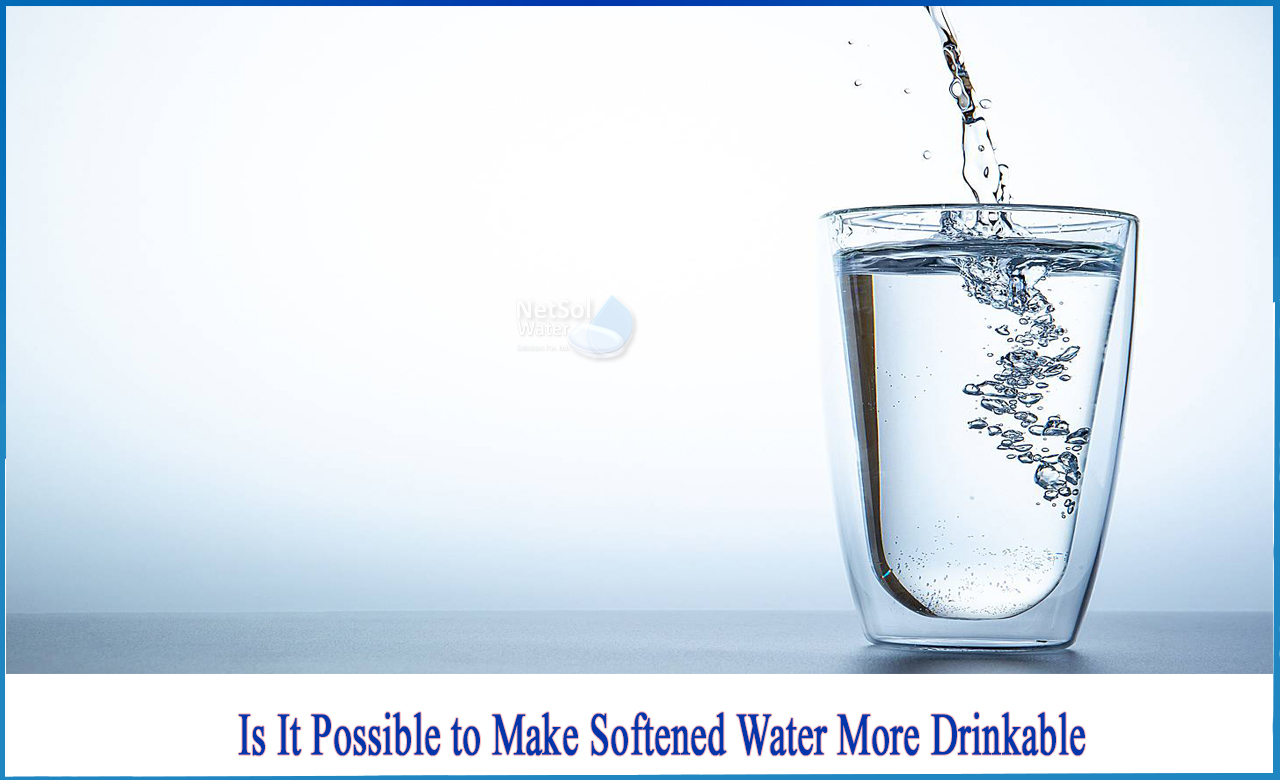The process of water softening can result in an increase in sodium levels in the water. While most soft water is perfectly safe to drink, people with high blood pressure should avoid water with high sodium levels. Even for those who are concerned about their health, there is a way to make softened water drinkable.
HOW TO MAKE SOFT WATER?
Water hardness, caused by calcium and magnesium compounds, increases the amount of soap required to lather and causes minerals to deposit scale on pipes. A water softener uses an ion exchange process to remove minerals from water. Polystyrene beads charged with sodium chloride ions are used in water softeners. When hard water is passed over the beads, the mineral ions and sodium chloride ions exchange places. This removes minerals from the water.
The hardness of softened water determines its safety. If the water is extremely hard, it means that sodium has replaced the majority of the calcium and magnesium. Water hardness is measured in grains per gallon or parts per million, according to the Water Quality Association (ppm).
IS IT SAFE TO DRINK SOFTENED WATER?
Water is safe to drink if the hardness is less than 400 parts per million (ppm) calcium. If the water contains more than 400 ppm, a reverse osmosis (RO) water filtration system is required. This will remove the calcium, lowering the sodium content of the softened water. A water hardness of more than 400ppm indicates that more sodium has been added, and this is not safe to drink. The RO filter will ensure that all extra mineral content and sodium are removed, resulting in clean and fresh tasting water.
SOFTENED WATER IS SALTY
An ion exchange process is used in a water softener to remove the ions in hardness-causing minerals and replace them with sodium ions. The hard ions adhere to the resin beads, which are then flushed away when the water softener regenerates. Of course, sodium is salt, and despite the fact that an ion is smaller than an atom, a large number of ions are exchanged during this process. As a result, some people may notice a slight salty taste when drinking this softened water.
How to make soft water more drinkable?
If you have very hard water and are concerned about sodium, a reverse-osmosis filter is the best way to make soft water drinkable. Reverse osmosis is a type of water purification technology that removes salt and other large particles from drinking water using a semi-permeable membrane. As a result, you will have sodium-free, chemical-free, delicious, and healthy water.
Other types of filters will not assist in making soft water drinkable because they do not remove sodium or specific minerals.
WHAT IS RO FILTRATION?
RO water purification works by applying high pressure to the water and forcing it through a semipermeable membrane. Smaller water particles easily pass through, but larger contaminants become trapped on the surface. Because this system can desalinate water for drinking, removing sodium is simple, and the user is left with clean drinking water that tastes great.
Netsol Water is Greater Noida-based leading water & wastewater treatment plant manufacturer. We are industry's most demanding company based on client review and work quality. We are known as best commercial RO plant manufacturer, industrial RO plant manufacturer, sewage treatment plant manufacturer, Water Softener Plant Manufacturers and effluent treatment plant manufacturers. Apart from this 24x7 customer support is our USP. Call on +91-9650608473, or write us at enquiry@netsolwater.com for any support, inquiry or product-purchase related query.



